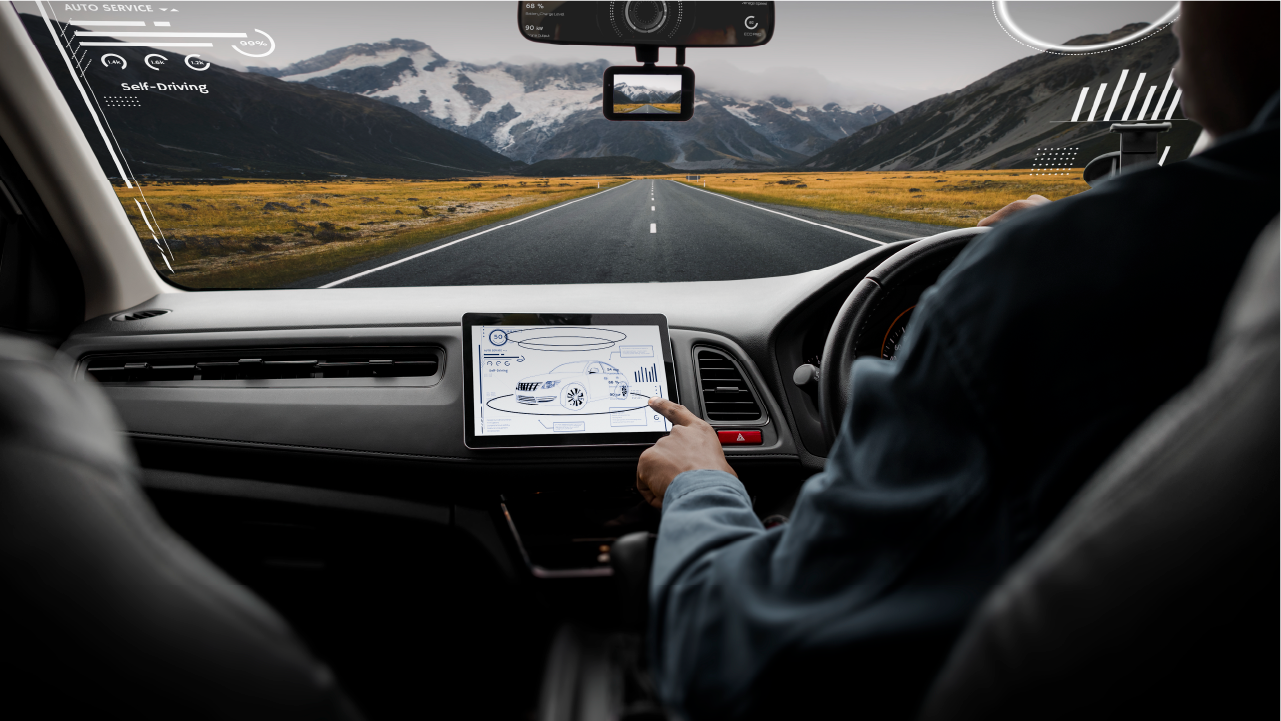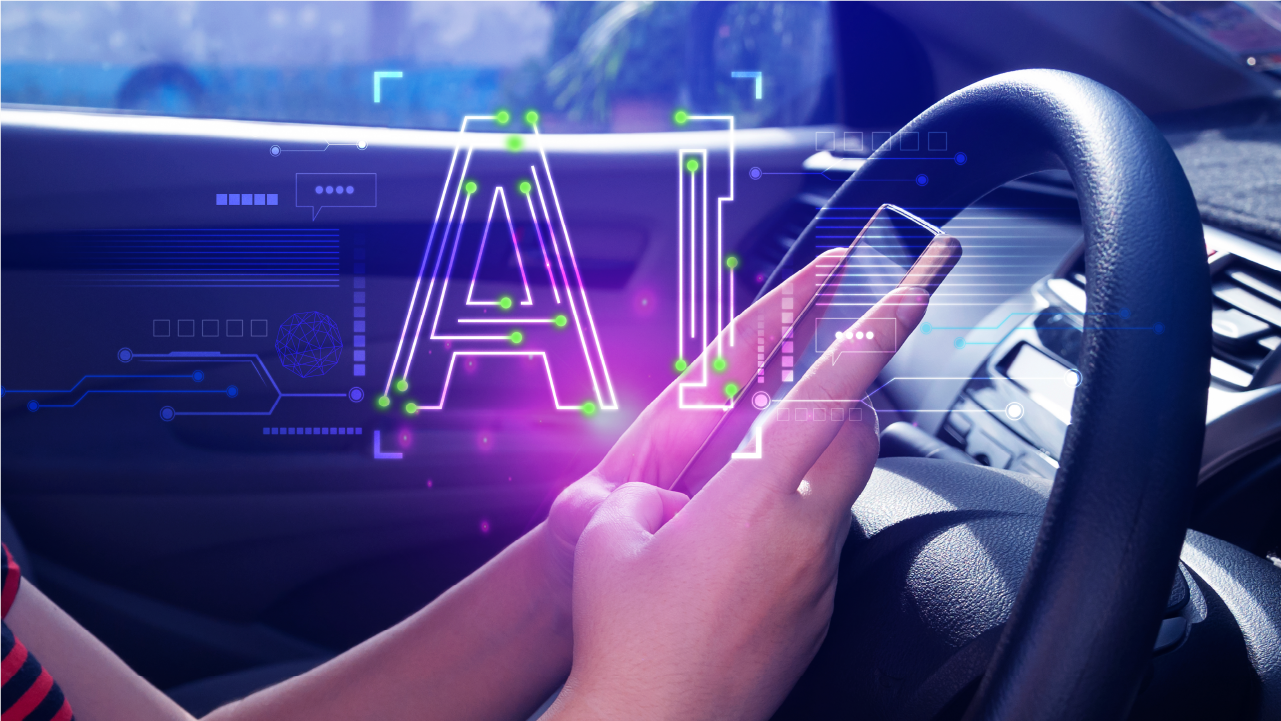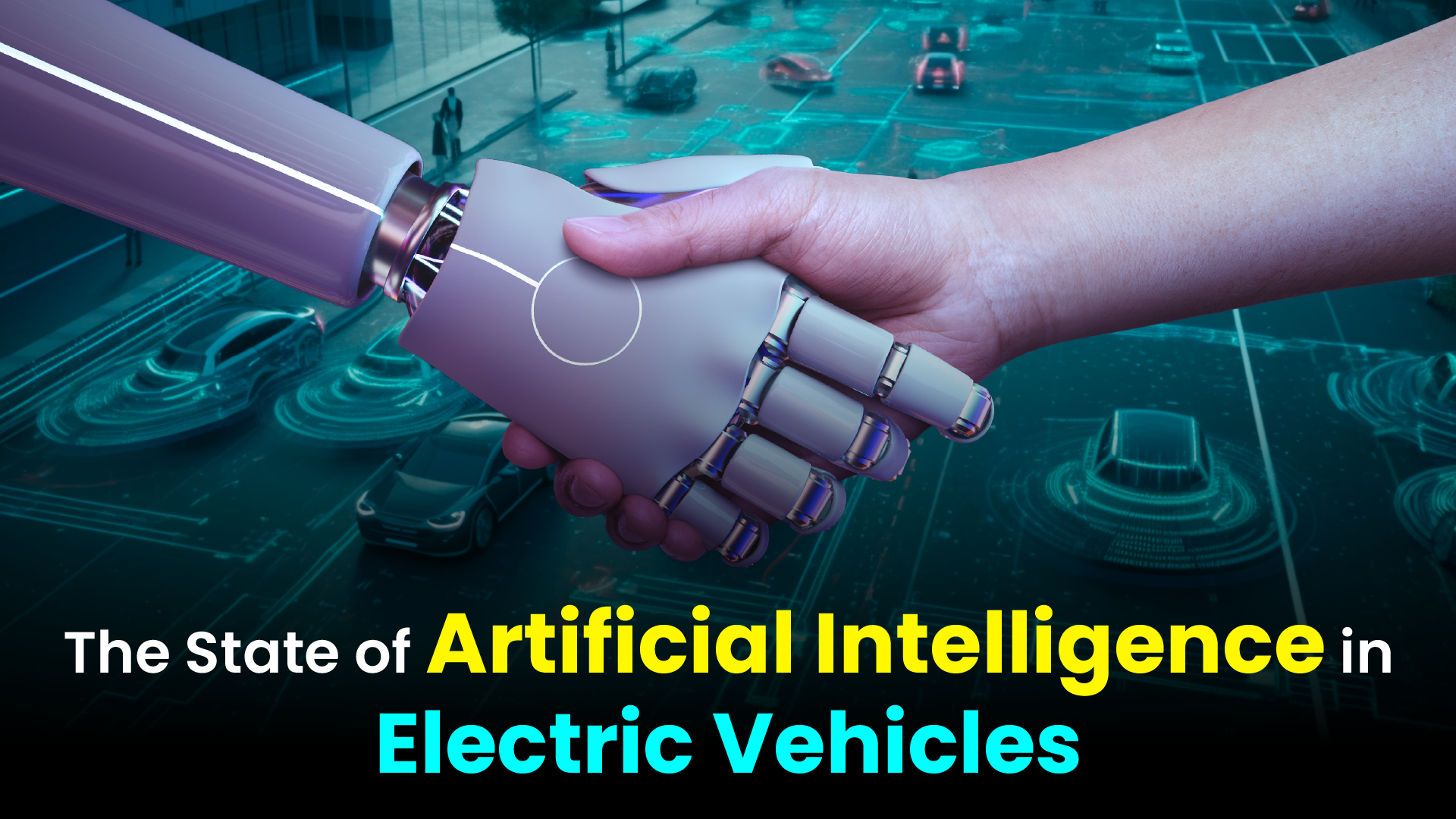Artificial intelligence (AI) is transforming industries worldwide, and the automotive sector is no exception. Among the most exciting advancements is the integration of artificial intelligence in electric vehicles (EVs). This innovation is reshaping the way we think about transportation, offering numerous benefits that enhance both energy consumption and driving experience.
Imagine an EV that optimizes battery life, navigates for maximum efficiency, and even predicts potential problems. This isn’t science fiction – it’s reality. Thanks to the intrusion of artificial intelligence in electric vehicles.
This article explores the significant impact of artificial intelligence on electric vehicles, highlighting the advancements and benefits that come with this technological synergy. Let’s explore how AI is shaping the future of electric vehicles.
From Efficiency to Performance: AI Takes the Wheel
Electric vehicles (EVs) are no longer just about eco-conscious driving. Artificial intelligence in electric vehicles is taking the wheel and optimizing the performance of your soup. It’s also bringing in cloud technology to into the play. Here’s how the AI is enhancing the efficiency of your electric vehicle
- Battery Brainiacs: AI algorithms are like battery whisperers. They analyze battery data in real-time, fine-tuning charging cycles to maximize battery life and driving range. This translates to fewer charging stops and a longer lifespan for your EV’s heart.

- Smarter Than Your Average Brakes: Regenerative braking captures energy during braking and feeds it back to the battery. AI steps in to optimize this process, squeezing out every drop of usable energy and boosting overall efficiency.
- The Efficient Navigator: Traffic jams and detours? No problem. AI-powered navigation systems consider real-time traffic, weather, and even elevation changes to suggest the most efficient route, saving you time and energy.
Safety in Numbers: AI Enhances Driver-Assistance Systems
Artificial intelligence in electric vehicles is more than just about efficiency – it’s about safety too. Advanced Driver-Assistance Systems (ADAS) are getting a boost from artificial intelligence, making EVs even safer for drivers and pedestrians.

Advanced Driver-Assistance Systems (ADAS) are a collection of technologies designed to improve the safety and comfort of driving a vehicle. They use a combination of sensors, cameras, radar, and software to detect surrounding objects, potential hazards, and even driver impairment. ADAS features can then provide warnings, take corrective actions, or assist the driver in various ways.
- Extra Eyes on the Road: AI can analyze data from cameras and radars, providing a 360-degree view of your surroundings and potential hazards. Think of it as a super-powered co-pilot keeping you aware of potential dangers.
- Enhanced Safety Features: Features like automatic emergency braking, lane departure warning, and adaptive cruise control are powered by AI, giving you an extra layer of protection on the road. AI can react faster than humans in critical situations, potentially preventing accidents.
Many car manufacturers are already incorporating different AI technologies into their models. Here are some real-world examples:
- Tesla Autopilot: This system utilizes cameras, radar, and ultrasonic sensors to provide features like automatic lane centering, adaptive cruise control with traffic light and stop sign recognition, and even a rudimentary navigation on highways (though full self-driving capability is still under development).
- General Motors Super Cruise: Like Tesla’s Autopilot, Super Cruise offers hands-free driving on compatible highways with features like lane changing assistance and automatic emergency braking.
- Nissan ProPILOT Assist: This system offers adaptive cruise control with automatic emergency braking and lane departure warning, making highway driving more comfortable and secure.
Self-Driving with Artificial Intelligence in Electric Vehicles
One of the most exciting applications of artificial intelligence in electric vehicles is the development of self-driving cars. Machine learning algorithms are the backbone of this technology, allowing autonomous vehicles to navigate complex road environments. While fully self-driving cars are still under development, AI is paving the way for a future where driving becomes less stressful and more convenient.
Several companies are developing and testing autonomous technologies in electric vehicles. Here are some prominent examples:
- Waymo: A subsidiary of Alphabet Inc. (Google’s parent company), Waymo is a leader in self-driving technology. They operate a fleet of modified Jaguar I-Pace electric vehicles in Phoenix, Arizona, offering limited self-driving taxi services in specific geographies.
- Cruise: This self-driving car company, acquired by General Motors in 2016, focuses on developing autonomous electric vehicles for ride-hailing services. They’ve been testing self-driving Chevy Bolt EVs in San Francisco, California, with plans for expansion.
Predictive Power: AI Maintains Your EV
Just like any machine, EVs require maintenance. But with artificial intelligence in electric vehicles, you can ditch the guesswork. AI can analyze sensor data from various EV components to predict potential failures before they happen. This allows for preventive maintenance, saving you money on repairs and unexpected breakdowns. Imagine never having to worry about a dead battery on the side of the road again.
Several car manufacturers are already incorporating AI-based predictive maintenance systems into their electric vehicles (EVs). Here are some specific examples:
- BMW: BMW’s electric vehicles use AI to monitor the health of the battery and other crucial components. The system analyzes data from various sensors and can detect potential issues before they lead to a breakdown. BMW has also implemented cloud-based solutions that leverage AI to analyze data from a fleet of vehicles, allowing them to identify trends and further refine their predictive maintenance strategies.
- Nissan: Like BMW, Nissan EVs are equipped with AI-powered systems that monitor battery health and other critical components. The system can detect potential problems and alert owners or service centers proactively, preventing unexpected issues and ensuring optimal performance.
A Personalized Experience: AI Makes Your Ride Unique

Your car should be an extension of yourself, and artificial intelligence in electric vehicles is making that a reality. AI-powered voice assistants can learn your preferences and personalize your in-car experience. Imagine a car that adjusts the climate control or suggests navigation routes based on your habits. AI is making EVs not just smart, but also user-friendly and comfortable.
The future of electric vehicles is bright, and artificial intelligence in electric vehicles is a major driving force behind this revolution. With AI, EVs are becoming not only eco-friendly but also intelligent, safe, and efficient machines. As AI technology continues to evolve, we can expect even more exciting advancements that will reshape the way we drive and experience electric vehicles. So, buckle up and get ready for a thrilling ride powered by artificial intelligence!
FAQs
-
How does AI impact EV battery life?
AI algorithms can optimize battery charging and discharging cycles, extending battery life. Predictive maintenance models help detect issues early, preventing battery degradation.
-
What role does AI play in EV charging infrastructure?
AI helps manage charging stations efficiently by predicting demand, optimizing charging schedules, and balancing grid load. It ensures seamless integration of EVs into existing power networks.
-
Can AI improve EV safety?
Yes! AI assists in collision avoidance, adaptive cruise control, and lane-keeping systems. Machine learning enhances safety features by learning from real-world driving data.
-
How does AI impact autonomous driving in EVs?
AI algorithms process sensor data (lidar, radar, cameras) to enable self-driving capabilities. Deep learning models enhance perception, decision-making, and navigation.
-
What’s the future of AI in EVs?
AI will continue to evolve, enabling fully autonomous EVs, personalized driving experiences, and energy-efficient routes.





